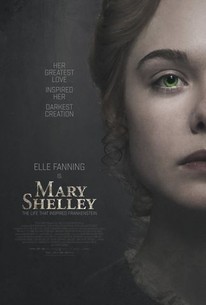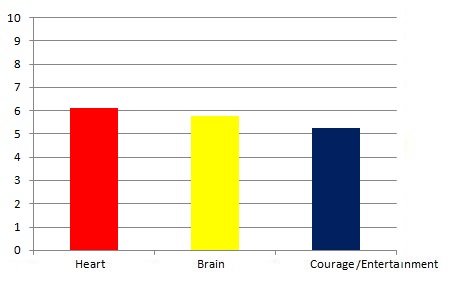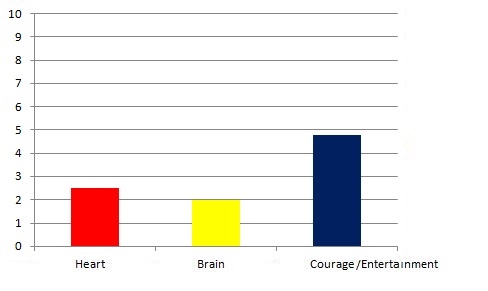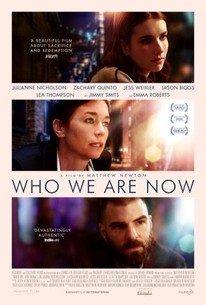
Main Page
Alphabetical Menu
Chronological Menu
|
Mary Shelley 
 Solo: A Star Wars Story  Han Solo (Alden Ehrenreich) escapes the planet of Corellia, but leaves his girlfriend, Qi'ra (Emilia Clarke) behind. A few years later, he's a soldier in the Imperial Army and hopes of rescuing Qi'ra to leave the planet with her and to travel around the galaxy. He meets Chewbacca (Joonas Suotamo) and teams up with Lando Calrissian (Donald Glover), Beckett (Woody Harrelson), Val (Thandie Newton) and Rio Durant (voice of Jon Favreau) to steal precious fuel called coaxiom, the film's Macguffin. They end up indebted to the pernicious Dryden Vos (Paul Bettany), head of the crime syndicate, Crimson Dawn. Han flies the starship Millennium Falcon which he wins from a bet with Lando. Solo: A Star Wars Story is a dull, shallow sci-fi-action thriller that lacks the small amount of fun of the Star Wars films. Alden Ehrenreich and Emilia Clarke don't have enough chemistry together, so there's no emotional pull during Han's quest to rescue Qi'ra. Enhrenreich has acting chops, but lacks the charisma that would've carried the film. None of the characters feel lived-in; they're just there to move the plot along, so it's hard to truly root for or to care about any of them. When it comes to the intricacies of the plot, there's not much that's left to the imagination save for a few underdeveloped subplot. The twists and turns, none of which will be spoiled here, aren't very surprising or shocking. The greatest disappointment, though, is that even as a shallow blockbuster, Solo: A Star Wars Story, fails to be thrilling, rousing or exciting during its action sequences. Too many scenes becomes lethargic, last too long and fail to generate any emotions. If you remove the plot and visual spectacle from the film, there's nothing at its center. That said, the CGI looks great and sound design is superb, but sound and visuals can only go so far. The weak, lazy and stilted screenplay by Jonathan and Lawrence Kasdan leaves a lot to be desired in terms of characters, story and palpable emotions, so the film's exquisite production design doesn't compensate for that nor does the cast. To top it all off, Solo: A Star Wars story suffers from flaws that too many Hollywood blockbusters suffer from: it overstays its welcome long before the end credits roll, and it has too many false endings. Were this a lean 90-minute spectacle with tighter editing, it would've been at least mildly engaging. Instead, it's a tedious, overlong and insipid bore with no emotional core nor any palpable thrills.  Who We Are Now  Beth (Julianne Nicholson), freshly
released from prison for manslaughter, struggles to regain custody of her 10-year-old son, Alec
(Logan Schuyler Smith), who's now under the custody of her sister, Gabby (Jess Weixler) and
Gabby's husband, Sam (Scott Cohen). She gets drunk at a local bar where she meets Peter
(Zachary Quinto) and has sex with him, but refuses to give him her phone number to go beyond
being a one-night stand. Carl (Jimmy Smits), Beth's laywer, has a new young lawyer, Jess (Emma
Roberts), working at his law firm. Jess and Beth meet at a nail salon that Beth works at and strike a friendship with one another.
The screenplay by writer/director Matthew Newton feels poignant and thoroughly engrossing. Much like Richard Linklater, Newton clearly has a very sharp ear for natural dialogue and knows when to include pauses without causing the film to become lethargic. This is a slow-burning drama, but no scenes drag. He also knows how to incorporate exposition in a realistic way and when to trust the audience's intelligence. A lesser talented filmmaker would've bombarded the audience with all of the details of Beth's tragic past right away when she asks Vince (Jason Biggs), a restaurant manager, if he wants her to elaborate on her manslaughter conviction when she bravely admitsit. Vince doesn't want her to elaborate. Instead Newton withholds that key information until it all rises to the surface in the third act. Newton avoids 2 tropes which makes the film truly refreshing: there's no musical score, flashbacks nor any voice-over narration. By omitting music, with the exception of a jazz band playing music at a bar, he demonstrates that he trusts the audience's emotions, a quality that's rarely found in modern American filmmakers with the exception of Linklater. Who We Are Now is a warm and wise character study with complex characters, even when it comes to the small roles, i.e. Vince, Peter, and Beth's mother, Alana (Lea Thompson). Beth remains a fascinating character because she's fallible like human beings are. She's vulnerable yet courageous. She has likable qualities and unlikable qualities, but that makes her all the more interesting, real and relatable. Words cannot adequately describe just how radiant and mesmerizing Julianne Nicholson's performance truly is here. She finds the emotional truth of Beth's role and carries it with her from start to finish. Her performance is just as powerful as Gena Rowlands' performance in A Woman Under the Influence. Bravo to Newton for providing a window into Beth's soul, and bravo to Nicholson for opening that window so widely. One can only imagine how challenging it might've been to shake this role off emotionally. If there were any justice, she would be nominated for Best Actress this awards season. Newton and Nicholson ultimately achieve something far more valuable than any accolades can achieve: they help to ground the film in humanism, a truly special effect that money cannot buy. If you were to remove the plot, you'll find a palpable heart, mind and soul in its center. Who We Are Now will be held for a second week at Cinema Village because of popular demand, and it deserves to become a sleeper hit with strong word of mouth. It would make for an interesting double feature with A Woman Under the Influence, Funny Ha Ha and A Kid Like Jake.  |